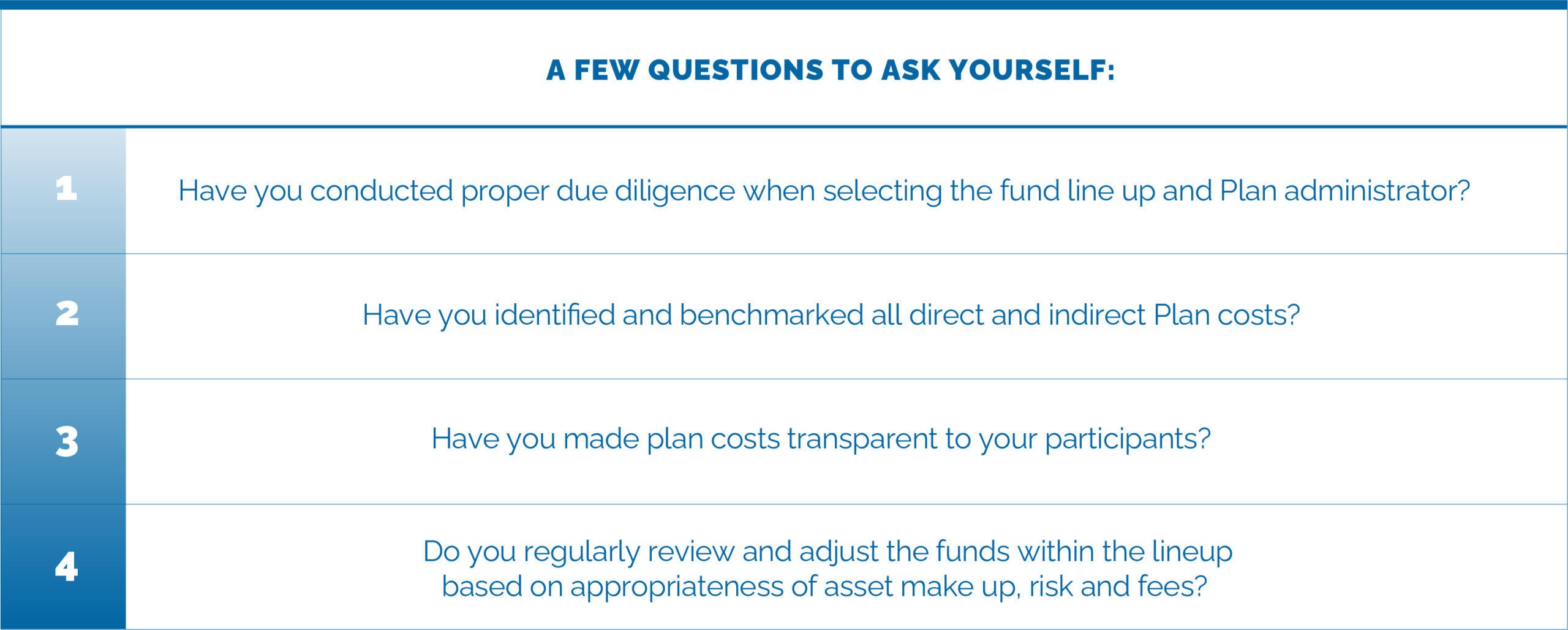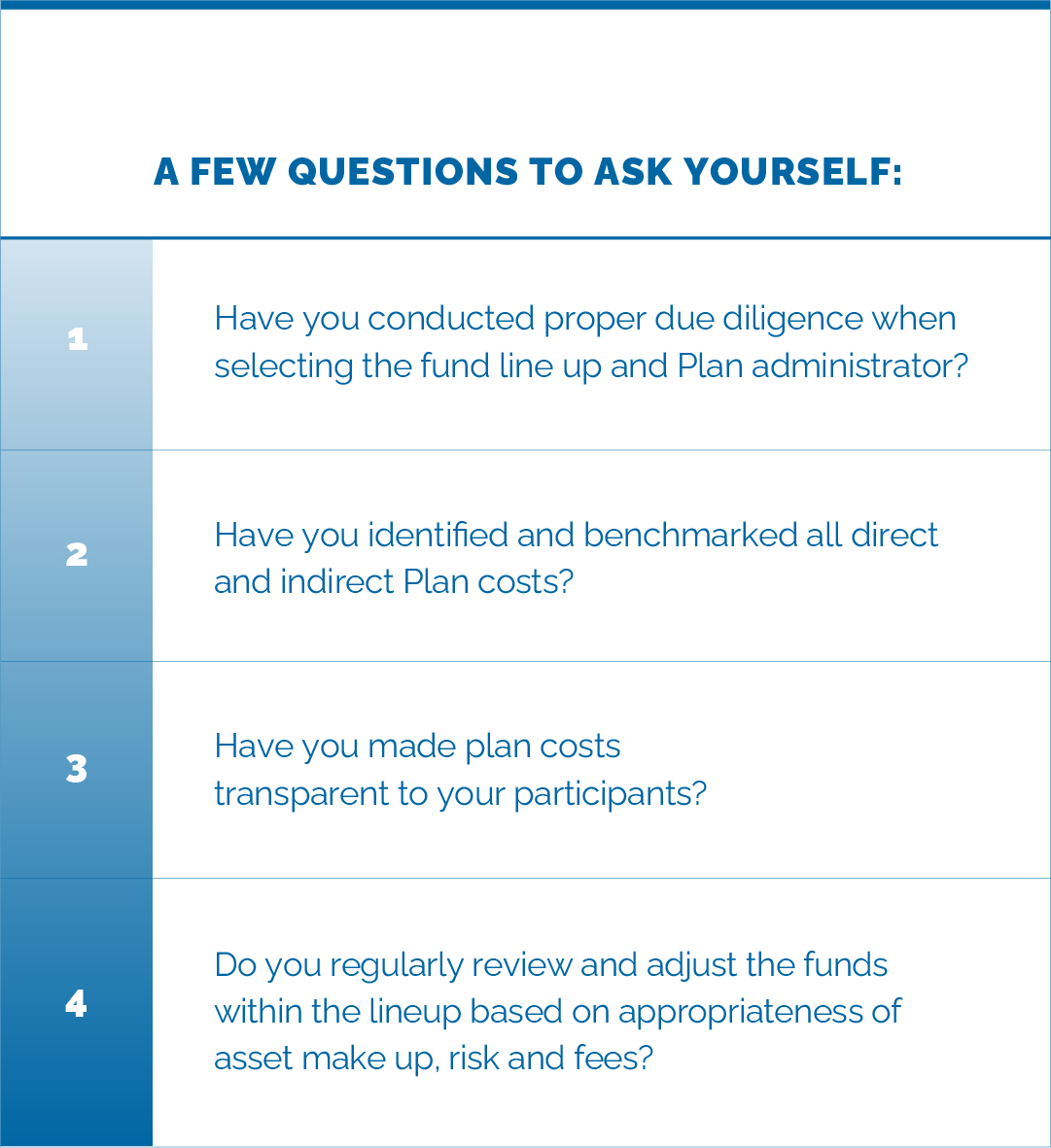Over the last 10 years, there has been a rise in breach of fiduciary duty lawsuits against 401(k) plans including recent large payouts from Boeing ($57M) and Wells Fargo (32.5M). These lawsuits challenge Plan administration fees, the appropriateness of the fund lineup, fund fees, and the governance process that oversees the Plan.
BUT WHAT ABOUT 403(B) PLANS?
Similar to 401(k) plans, we have begun to see comparable lawsuits and payouts (e.g. Cassell v. Vanderbilt ($14.5M)) filed against 403(b) Plans – a trend that is expected to continue following a recent unanimous decision by the US Supreme Court in Hughes v. Northwestern University making it harder for lower courts to dismiss excessive fee lawsuits.
Per a report by the US Government Accountability Office (GAO) the large volume of 403(b) Plan assets and wide range of fees has raised suspicions:
1. More than $1T in 403(b) Plans assets (almost twice 401(k) assets subject to ERISA).
2. 1 bps to 2.01 bps in 403(b) record keeping and administration fees
3. 1 bps to 2.37 bps 403(b) investment fees
4. Funds with Assets Under Management (AUM) of greater than $1B tended to have lower fees than smaller plans
Since some of these plans are not subject to ERISA, they do not file 5500 Reports each year where plan expenses are reported, and some level of transparency is achieved. Permitting high operating costs and expense ratios without proper governance over time leads to lost earnings and potentially claims of negligence and breaches of fiduciary duty.
YOUR ROLE:
As a Plan fiduciary your actions, or in-actions, are what will be scrutinized by potential claimants. Compliance with fiduciary standards is crucial in both the initial establishment of your plan as well as in continuous on-going monitoring of vendors, investments, fees and regulations. The list of questions goes on and on. Ensuring that the Plan is operating with the best interests of its Plan participants is the ultimate test that you need to satisfy.


YOUR ROLE:
HOW OPTIMATUM CAN HELP:
To improve resilience against these risks, Optimatum supports clients from proactive foundational assessments to on-going Plan management and, while we hope you never need it, addressing plan operational challenges as they arise. The ultimate goal is to:
- Establish a foundation of compliance
- Right-size vendor relationships
- Decrease direct costs
- Address vendor challenges
- Reduce on-going compliance risks
Don’t allow your Plan to become a target for a lawsuit. Be proactive in implementing the best-in-class practices for governance and vendor management.
ABOUT OPTIMATUM:
Optimatum is a vendor management firm that focuses exclusively on the HR supply chain with turnkey solutions that improve the financial, operating performance, transparency and accountability of HR Benefit programs while still maintaining existing vendor relationships.
Our support of the HR workstream during the M&A lifecycle encompasses operational due diligence, day-one readiness and post day-one synergies. We assist sponsors in leveraging the aggregate purchasing power of their portfolio to capture value and drive margin expansion.
More Thought Leadership Pieces


Issues with Company Wellness Programs
In today’s business environment, employers need to weigh the overall ROI company wellness programs.


A Reminder to Review Your Vendor Agreement
Clients need to be diligent in monitoring their vendor relationships to ensure greater transparency.


Managing Health Care Costs with Accountability
Regardless of employer, the opportunity to save in excess of $1,000 per employee per year continues.

